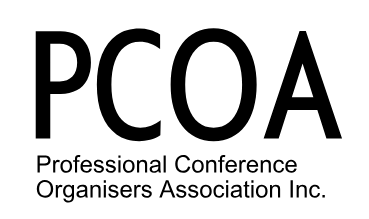Sustainability in Business Events: From Ambition to Impact
 Following the recent 26th Annual United Nations Climate Change Conference (COP26) held in Glasgow, the topic of sustainability is on everyone’s minds, including MICE buyers like associations, corporates and conference organizers, all eager to enforce effective policies and positive outcomes.
Following the recent 26th Annual United Nations Climate Change Conference (COP26) held in Glasgow, the topic of sustainability is on everyone’s minds, including MICE buyers like associations, corporates and conference organizers, all eager to enforce effective policies and positive outcomes.
As the globe’s temperature continues to rise due to human-induced global warming, the world is racing against time to cut global greenhouse gas emissions and ensure that the global temperature rise limits well below 1.5 degrees Celsius (Paris Agreement stabilization goal) compared to the pre-industrialization era.
Thailand’s Prime Minister Prayut Chan-o-cha at COP26 stressed in his speech that climate change is “a matter of life and death” and that Thailand is determined to reach a net-zero emissions target by 2065. He also pledged that Thailand would use every means necessary to fight climate change, including having 15 million electric vehicles by 2035.
Bangkok is already moving towards that objective. In October 2021, the new director of Bangkok Mass Transit Authority, Kittikan Chomdoung Charuworaponkul, announced plans to replace the capital’s fleet of 200 gas-guzzling buses with electric models.
Thailand has prioritized electric, and next-generation technologies for vehicle production as part of its Thailand 4.0 advanced national development strategy. Included in the strategy is the adoption of Industry 4.0 programs to make factories cleaner, greener and digitally driven.
Not all efforts to reduce carbon emissions are technological, however. At COP26, Prime Minister Prayut vowed to plant 100 million new trees across the Kingdom by the end of 2022 in a bid to tackle the climate issue, as Thailand is one of the top 10 countries in the world most affected by climate change.
Some of the other key takeaways at COP26 include protecting and improving the resilience of communities and ecosystems; mobilizing the private financial sector to fund initiatives to achieve global net-zero; and enhancing collaboration among the private sector, non-profits, and government agencies.
For the tourism and events industry, that means empowering indigenous peoples and local communities while reducing the carbon footprint when planning incentive travel programs and business events. More attention should be paid to local communities and small-scale farmers, as they can help mitigate the effects of climate change. Letting them participate in the conservation and management of local resources can help food security and lessen the impacts of climate change.
 Instead of importing caviar, salmon or other produce from overseas as part of the lunch/dinner menu, MICE groups could support local businesses that source and use only local ingredients for their dishes. In Chiang Mai, “Food for You” by Chef Tutu allows guests to experience the chef’s homely and delectable fare while enjoying views of the area’s lush greenery. Visiting organic tea plantation Araksa Tea Garden on the other hand, not only helps support jobs for women in the community but also allows guests to experience tea-picking, roasting and tasting the refreshing 100% organic tea. Those are just some of the myriad of examples that MICE groups can reduce their carbon footprint while supporting the sustainability of the community and environment.
Instead of importing caviar, salmon or other produce from overseas as part of the lunch/dinner menu, MICE groups could support local businesses that source and use only local ingredients for their dishes. In Chiang Mai, “Food for You” by Chef Tutu allows guests to experience the chef’s homely and delectable fare while enjoying views of the area’s lush greenery. Visiting organic tea plantation Araksa Tea Garden on the other hand, not only helps support jobs for women in the community but also allows guests to experience tea-picking, roasting and tasting the refreshing 100% organic tea. Those are just some of the myriad of examples that MICE groups can reduce their carbon footprint while supporting the sustainability of the community and environment.
The Joint Meetings Industry Council (JMIC) is also rallying event professionals to commit to its Net Zero Carbon Events initiative launched in October 2021, which aims to reach a net-zero target by 2050, as well as:
- Develop common methodologies for measuring the industry’s direct, indirect and supply-chain greenhouse-gas emissions.
- Construct an industrywide roadmap toward net-zero by 2050, and emissions reductions by 2030, in line with the Paris Agreement, with support and guidance on key issues.
- Foster collaboration with suppliers and customers to ensure alignment and common approaches.

- Establish common mechanisms for reporting progress and sharing best practices.
Download the full document by TCEB here.
Thailand Convention and Exhibition Bureau (TCEB) are a PCOA Business Partner.
